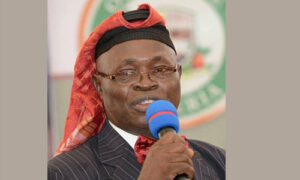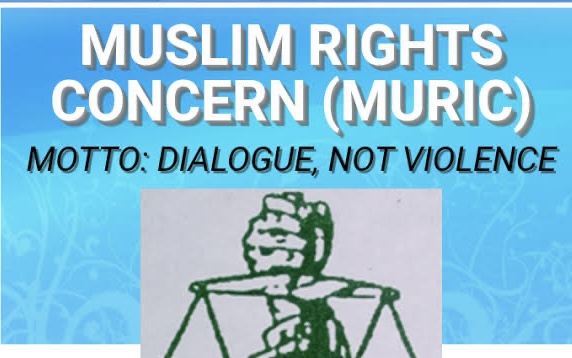The Muslim Rights Concern (MURIC) has sounded the alarm, revealing a disturbing plot by Governor Ahmed Aliyu of Sokoto State to strip the esteemed Sultan of Sokoto, Alhaji Muhammad Sa’ad Abubakar III, of his revered position.
In a statement released on Monday, Professor Isiaq Akintola, the Executive Director of MURIC, expressed deep concern over this development, which unfolds against the backdrop of controversy and tension surrounding the recent deposition of several monarchs in Kano State.
Governor Aliyu had previously deposed 15 traditional rulers, citing various offenses. However, Akintola vehemently asserts that Nigerian Muslims vehemently reject any notion of deposing the Sultan.

Akintola warns that the governor should proceed with caution, emphasizing that the Sultan’s role extends far beyond the boundaries of Sokoto State.
He reminded all that the Sultan is not only a custodian of tradition but also a spiritual leader, representing the entire Nigerian Muslim community.
His influence and jurisdiction span the nation, as he holds the esteemed position of both the Sultan of Sokoto and the President General of the NSCIA (Nigerian Supreme Council for Islamic Affairs).
The leader of MURIC cautions Governor Aliyu against provoking Nigerian Muslims into taking drastic and revolutionary measures.
He highlighted the fact that the acceptance of a traditional ruler as a leader has long been a compromise and a necessary aspect of the Nigerian Muslim structure.
Recalling the deposition of Sultan Ibrahim Dasuki in 1996, Akintola emphasizes that continued diminishment of the Sultan’s authority by Sokoto governors may force Nigerian Muslims to make a difficult decision.
He warns that if this trend persists, the Nigerian Muslim community, both in the North and South, may ultimately opt for Islamic scholars as the President General of the NSCIA and the overall leader of Nigerian Muslims.
Akintola concludes by urging the Sokoto State House of Assembly to review or repeal the state’s chieftaincy laws, specifically including an exemption for the Sultan of Sokoto.
He calls upon Northern elites and Islamic scholars to intervene swiftly, lobbying both the House of Assembly and the governor to ensure the preservation of the Sultan’s office and the dignity of Nigerian Muslims.
Drawing attention to the recent swift repeal of chieftaincy laws in Kano State, he asserts that there is no reason why Sokoto State cannot follow suit to safeguard Nigerian Muslims from immense embarrassment.
In the face of this impending struggle for authority and unity, the Sultan’s position hangs in the balance, posing a significant threat to the stability and harmony of the Nigerian Muslim community.
The time for action and intervention is now, as the fate of the Sultanate and the fate of Nigerian Muslims are intertwined in this critical moment of history.




